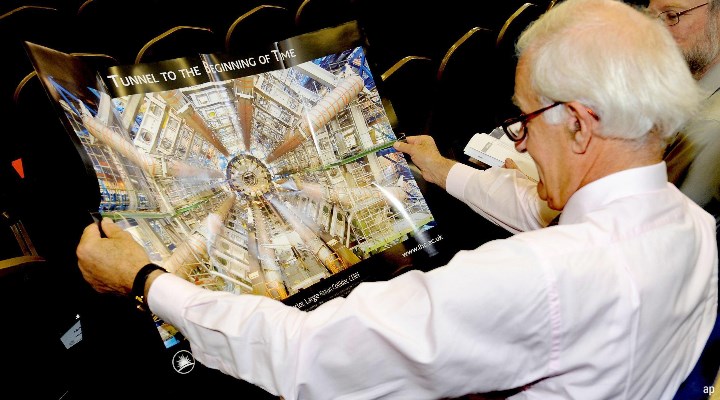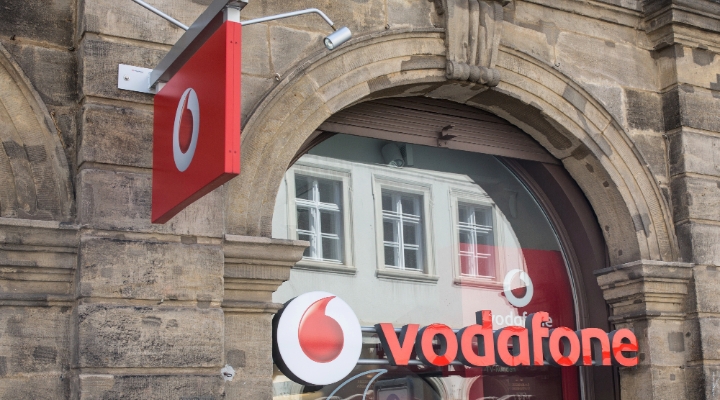Is it The Beginning of The End for Boris?
Having survived calls to resign over #partygate and an onslaught of embarrassing revelations at the start of the year, Boris Johnson surprised many by managing to stay put. But it may not be for much longer. MPs this week approved a privileges committee probe into his conduct, and, if it finds he misled parliament, the consequences could be very serious.
Large Hadron Collider 2.0 is Here
The Large Hadron Collider (LHC) captured the world’s imagination on its launch in 2008. Set 100 metres below the Franco-Swiss border, the coolest toy in CERN’s playroom is now back from a four-year upgrade. Whether you’re a serious particle accelerator boffin, or just enjoy those standup jokes about LHC being used to combine Terry’s chocolate with lots of oranges, CERN has just given us all something to be pleased about.
Earth Day is Here
Today is Earth Day, so if you’re looking for an array of investing content on the biggest environmental challenge facing mankind, look no further than Morningstar.co.uk. We’ve taken in everything from the rise of China as an ESG giant, to the questionable value of carbon credits. If I can highlight one article in particular, it’s senior editor James Gard’s summary of oil anxiety, and whether it is indeed justified.
People Are Asking Big Questions About Netflix
There was a time when Netflix was the doyen of the modern technology fund. But after difficult news this week, investors have been questioning its business strategy. Morningstar downgraded its fair value estimate for the streaming giant during the drama, which saw the company post its first ever subscriber losses. Our analyst doesn’t believe its reliance on a “sharing fee” is any panacea either. Check out the full story here.
Mass Timber Could be Mass-ive
As one thing slows, another thing grows. So it is with mass timber, which could be a promising substitute for construction materials like concrete. Several big high-rise projects in the US have already relied on the (admittedly expensive) building alternative, though, as our analyst at Sustainalytics points out, the higher cost outlay could well be worth it in the long-term.
Musk is Using His Own Money to Buy Twitter
Having submitted what he called a “final offer” for Twitter, filings by Elon Musk’s team this week revealed precisely how he intends to finance the hostile privatisation. Last week the Tesla CEO pledged a premium bid of $54.80 per share for the social media platform. He has since secured $46.5bn in financing to fund it, including $21bn of his own money, and a margin loan of $12.5bn secured against his shares in Tesla itself. Whether you like Twitter or Musk or not, there is a real ring here of the scene in The Big Short where Christian Bale goes to Wall Street asking for silly money to do something that could prove very silly indeed. That story didn’t have an unhappy ending though, so maybe that’s something.
Allocation Funds Are Back
March was the first month since October 2021 that the three largest asset classes all received net inflows simultaneously. In total, equity funds attracted £752 million, while £532 million was invested in fixed income funds. But, as data journalist Sunniva Kolostyak showed in this piece, it was allocation funds that topped March’s tables, with inflows of £1.16 billion.
The High Street’s Hopes Hit a Low Last Month
The UK’s retail sales are starting to show just how much consumers are feeling the pinch. Sales were down 1.4% in March, the Office for National Statistics (ONS) said. The fall is a reflection of plummeting demand for online purchases amid rising prices. The only winners from the bleak news were DIY shops and hospitality outlets, which both received a boon as the sun shone and consumers spent more time outside.
Tencent Has Given its Two Cents on UK Fintech
Tencent, the Chinese tech giant beloved of many a fund manager, has taken a stake in UK payments startup Previse, adding to its business interest in the sector, and placing a rough valuation on the UK company of £65 million. Tencents other bets are big and varied. It also owns stakes in Monzo, alongside Ultraleap, a company that simulates physical touch using ultrasound waves.
KitKat Buyers Are Betwixt a Rock and a Hard Place (And It’s No Picnic)
And speaking of the topic of the cost of living, fans of Nestle won’t be revelling in the news that the price of a KitKat is set to twirl upwards in the coming months. “Cost inflation continues to increase sharply, which will require further pricing and mitigating actions over the course of the year,” the company whispered. If you’re looking for someone to blame, blame Vladimir Putin, whose invasion of Ukraine has made production and energy costs much chunkier. Perhaps he should take some time out.





























